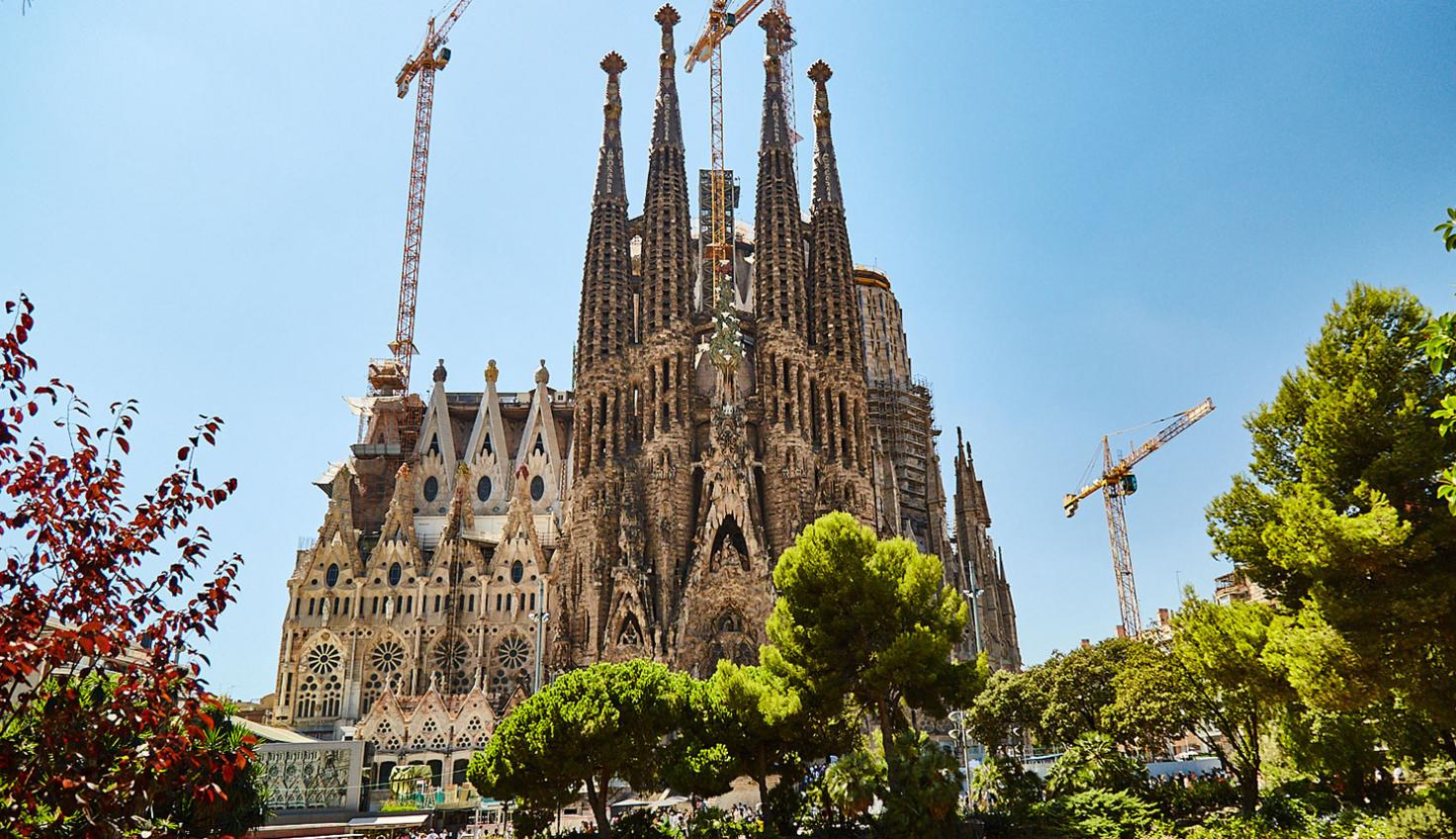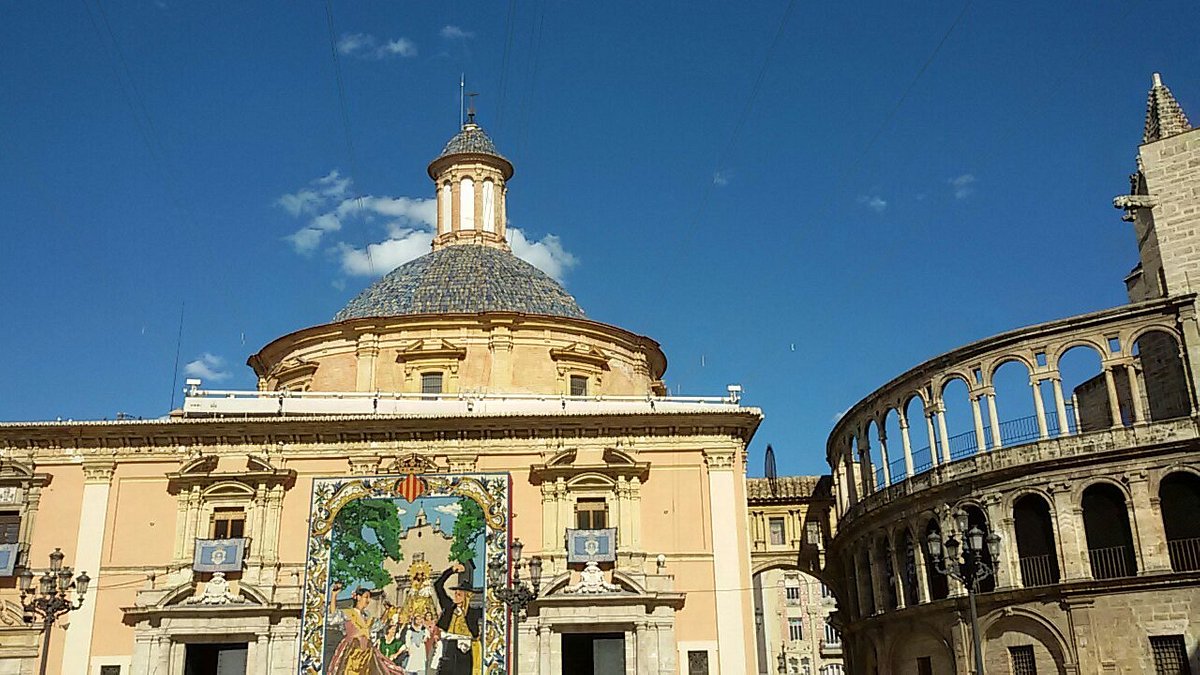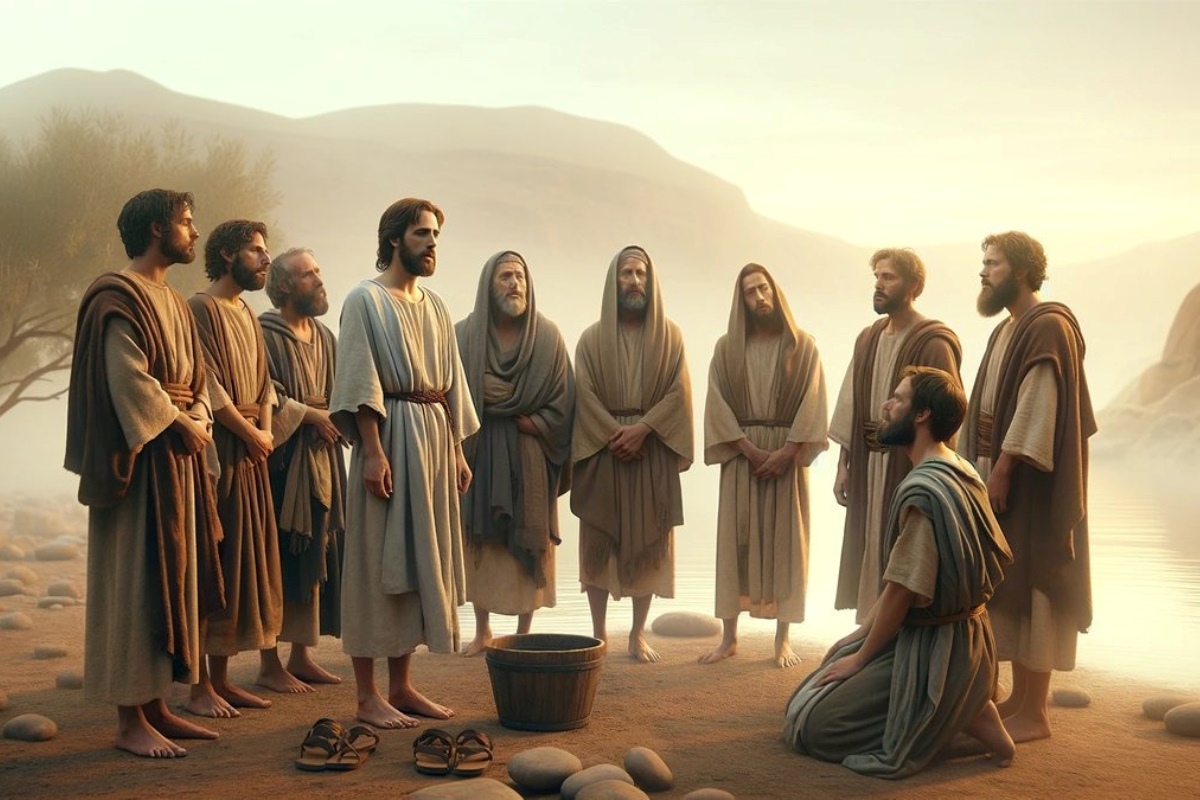Home>Theology and Spirituality>Who Is St John Baptist De La Salle


Theology and Spirituality
Who Is St John Baptist De La Salle
Published: February 23, 2024
Jason DeRose, Managing Editor at Christian.net, uses his expertise in religion and journalism to deepen understanding of faith's societal impacts. His editorial leadership, coupled with a strong academic background, enriches the platform’s diverse content, earning him recognition in both journalism and religious circles.
Discover the life and legacy of St John Baptist De La Salle, a prominent figure in theology and spirituality. Learn about his contributions and impact on the Catholic Church.
(Many of the links in this article redirect to a specific reviewed product. Your purchase of these products through affiliate links helps to generate commission for Christian.net, at no extra cost. Learn more)
Table of Contents
Early Life and Education
St. John Baptist de La Salle, the patron saint of teachers, was born into a noble family on April 30, 1651, in Reims, France. His early life was marked by privilege and prestige, as he was the eldest son of Louis de La Salle, a prominent official in the court of King Louis XIV. Despite his family's wealth and status, John Baptist displayed a compassionate and humble nature from a young age.
After receiving a solid education at the College des Bons Enfants, he went on to study at the University of Paris, where he excelled in his studies and earned a master's degree in arts. His academic achievements opened the door to a promising career in law or politics, but John Baptist felt a deep calling to serve others in a more meaningful way.
In 1670, tragedy struck the de La Salle family when John Baptist's parents passed away within months of each other, leaving him responsible for his siblings and the family estate. Despite the immense burden placed upon him, John Baptist embraced his new role with grace and determination, ensuring that his siblings received the care and education they deserved.
During this challenging period, John Baptist's spiritual journey took a profound turn. He became increasingly drawn to the teachings of the Christian faith and felt a strong desire to dedicate his life to serving God and those in need. This inner calling led him to pursue the priesthood, and in 1678, he was ordained as a deacon.
As a deacon, John Baptist continued to deepen his spiritual devotion and sought ways to live out his faith through action. His encounters with the poor and marginalized in Reims deeply impacted him, igniting a passion for social justice and education. This pivotal experience set the stage for his future vocation as a pioneer in the field of education.
John Baptist's commitment to his faith and his unwavering dedication to uplifting the underprivileged laid the foundation for his transformative work in the field of education. His early life and education not only shaped his character but also sowed the seeds of his enduring legacy as a visionary educator and advocate for social equality.
Read more: Who Was St John Baptist De La Salle
Founding the Institute of the Brothers of the Christian Schools
Driven by his unwavering commitment to provide quality education to the underprivileged, St. John Baptist de La Salle embarked on a groundbreaking mission that would revolutionize the landscape of education. In 1680, he founded the Institute of the Brothers of the Christian Schools, a religious community dedicated to the welfare and education of children, particularly those from impoverished backgrounds.
At the heart of this endeavor was the radical belief that education should be accessible to all, regardless of social status or financial means. This egalitarian vision was a stark departure from the prevailing educational norms of the time, which primarily catered to the elite class. St. John Baptist's innovative approach sought to empower the marginalized youth through knowledge and character formation, thereby fostering a more just and equitable society.
To realize this vision, St. John Baptist gathered a group of like-minded men who shared his passion for education and social reform. These individuals, known as the Christian Brothers, committed themselves to the noble cause of providing free, accessible, and holistic education to children who had been overlooked by the traditional educational institutions of the era.
The establishment of the Institute marked a pivotal moment in the history of education, as it introduced a new paradigm that emphasized the importance of practical learning, individualized instruction, and a compassionate approach to teaching. St. John Baptist's innovative methods, such as creating a systematic curriculum and training teachers to deliver high-quality education, set a new standard for educational excellence.
Under his guidance, the Institute flourished, expanding its reach across France and eventually extending its influence to other parts of the world. St. John Baptist's unwavering dedication to the Institute's mission inspired countless individuals to join the cause, further amplifying the impact of his educational reforms.
The Institute of the Brothers of the Christian Schools became a beacon of hope for countless children who had previously been denied access to education. Through St. John Baptist's visionary leadership, the Institute not only provided academic instruction but also instilled values of compassion, integrity, and service, nurturing generations of young minds to become empowered, conscientious members of society.
St. John Baptist de La Salle's founding of the Institute of the Brothers of the Christian Schools stands as a testament to his enduring legacy as a pioneer in education and a champion of social justice. His profound impact on the field of education continues to resonate today, serving as a timeless reminder of the transformative power of visionary leadership and unwavering dedication to the betterment of humanity.
Educational Reforms and Legacy
St. John Baptist de La Salle's enduring legacy is intricately woven into the fabric of educational reforms that transcended his era and continue to shape modern pedagogy. His visionary approach to education, characterized by inclusivity, innovation, and compassion, laid the groundwork for a transformative legacy that has left an indelible mark on the field of education.
Central to St. John Baptist's educational reforms was his unwavering commitment to providing accessible and holistic education to all children, regardless of their socioeconomic background. His pioneering efforts challenged the prevailing notion that education was a privilege reserved for the elite, advocating instead for a system that recognized the inherent worth and potential of every child. By prioritizing the needs of marginalized youth and emphasizing the value of individualized instruction, St. John Baptist revolutionized the educational landscape, setting a precedent for inclusive learning environments.
Furthermore, St. John Baptist's emphasis on practical, experiential learning represented a paradigm shift in educational philosophy. He recognized the importance of equipping students with not only academic knowledge but also practical skills that would empower them to thrive in the real world. By integrating hands-on learning experiences and vocational training into the curriculum, St. John Baptist laid the groundwork for a more comprehensive and relevant educational model that resonates with contemporary educational best practices.
The legacy of St. John Baptist's educational reforms extends beyond the confines of traditional classroom instruction. His holistic approach to education encompassed the moral and spiritual development of students, emphasizing the cultivation of virtues and ethical values. By instilling principles of empathy, integrity, and social responsibility, St. John Baptist's educational philosophy transcended academic excellence, nurturing well-rounded individuals poised to contribute meaningfully to society.
The impact of St. John Baptist's educational reforms is evident in the enduring influence of the Institute of the Brothers of the Christian Schools, which continues to uphold his visionary principles across the globe. The Institute's commitment to providing quality education to underserved communities reflects the enduring legacy of its founder, serving as a testament to the enduring relevance of St. John Baptist's educational vision.
In essence, St. John Baptist de La Salle's educational reforms and legacy epitomize the transformative power of visionary leadership in the realm of education. His unwavering dedication to inclusivity, innovation, and holistic development has left an indelible imprint on the educational landscape, inspiring generations of educators to embrace his timeless principles and perpetuate his enduring legacy of educational excellence and social equity.
Canonization and Feast Day
St. John Baptist de La Salle's profound impact on education and his unwavering commitment to serving the marginalized earned him widespread reverence and admiration. His enduring legacy as a visionary educator and advocate for social equality culminated in his canonization as a saint of the Catholic Church.
In 1900, St. John Baptist de La Salle was canonized by Pope Leo XIII, recognizing his exemplary life of devotion, compassion, and service to humanity. This momentous occasion elevated him to the esteemed status of sainthood, affirming his enduring influence and the profound significance of his contributions to education and social reform.
The canonization of St. John Baptist de La Salle not only celebrated his individual virtues but also affirmed the transformative power of education as a catalyst for positive societal change. His canonization served as a testament to the enduring impact of his visionary leadership and unwavering dedication to uplifting the underprivileged through the transformative power of education.
In honor of his remarkable legacy, the Catholic Church designated May 15th as the feast day of St. John Baptist de La Salle. This annual celebration serves as a poignant reminder of his enduring influence and the timeless relevance of his educational principles. On this day, educators, students, and communities around the world pay homage to his visionary spirit and unwavering commitment to providing accessible, holistic education to all.
The feast day of St. John Baptist de La Salle serves as an occasion to reflect on the profound impact of his educational reforms and to recommit to the noble cause of empowering the next generation through knowledge, compassion, and social responsibility. It is a time to celebrate the enduring legacy of a man whose visionary ideals continue to inspire and guide educators and learners across the globe.
As the patron saint of teachers, St. John Baptist de La Salle's feast day holds special significance for educators who draw inspiration from his compassionate approach to teaching and his unwavering dedication to nurturing the minds and hearts of their students. It is a day of gratitude for the transformative influence of educators who, like St. John Baptist, strive to create inclusive, empowering learning environments that uplift and empower every child.
In essence, the canonization and feast day of St. John Baptist de La Salle stand as a testament to the enduring impact of his visionary leadership and unwavering commitment to educational excellence and social justice. His legacy continues to resonate profoundly, inspiring generations to embrace the transformative power of education in shaping a more just, compassionate, and equitable world.















